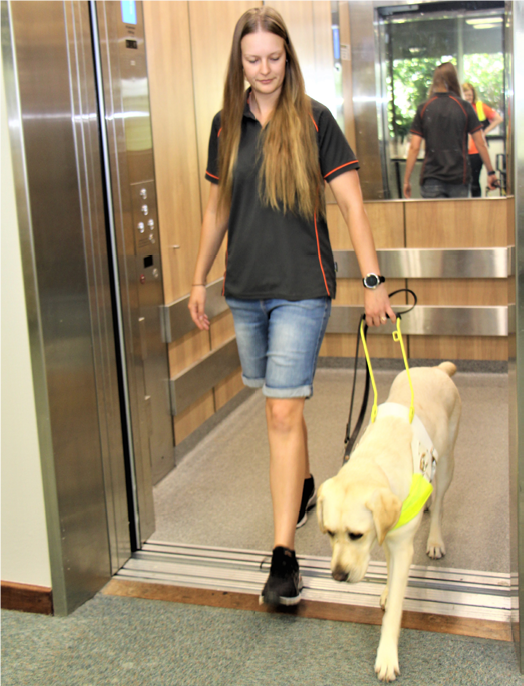Visiting assistance animals in NMHS hospitals

To coincide with International Guide Dog Day, celebrated this year on 29 April, the NMHS hospital network has produced a Visiting Assistance Animals guide (PDF) that recognises the importance of assistance animals and welcomes their use, where appropriate, in our facilities. The Guide provides information about the use of assistance animals in our hospitals and arrangements that may need to be made for patients, visitors and their assistance animal.
International Guide Dog Day acknowledges the critical role that guide dogs and assistance animals play in enabling people with impaired vision to get around safely.
It’s amazing what a difference four paws, a wet nose and a wagging tail can make in assisting vision impaired people, as well as people with other disabilities, to safely experience freedom and independence. The owners of these extraordinary dogs celebrate their loyalty and friendship each day.

